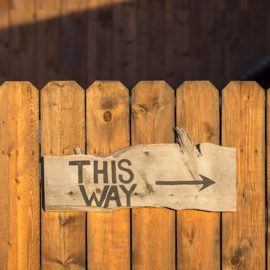

This article gives you a glimpse of what you can learn with Shortform. Shortform has the world’s best guides to 1000+ nonfiction books, plus other resources to help you accelerate your learning.
Want to learn faster and get smarter? Sign up for a free trial here .
Do you have a bad habit of procrastinating? What are some books about procrastination to help you get to work?
Procrastination is a hard habit to overcome and can interfere with your personal and professional life. If you want to get more work done without getting distracted, you should check out these 13 books on procrastination.
Below we’ve compiled a list of the best productivity books that you shouldn’t put off reading.
The Top Books That Tackle Procrastination
Do you ever hold off on completing important tasks? After reading the books below, you’ll be able to tackle procrastination like a pro.
These books specifically tackle the topic of procrastination, with experts weighing in on how to defeat the hesitation habit.
Procrastination prevents us from living a fulfilling life, yet we still do it—why? In Procrastination, psychologists Lenora Yuen and Jane Burka argue that we procrastinate to experience short-term relief from our fear of working on certain tasks. Fortunately, they claim you can beat procrastination and learn to live a more fulfilling life if you accept reality’s constraints and learn healthier ways to manage your fears. In this book, you’ll learn how to…
- Identify the fears that lead you to procrastinate
- Reflect on how your biology, circumstances, and self-esteem affect your procrastination
- Learn to set and achieve realistic goals
- Better control how you manage your emotions and time
There isn’t enough time in the day to meet all of the work and personal responsibilities you’re swamped with, let alone keep up with email, social media, and all the things you’ve been meaning to read. In Eat That Frog, business consultant Brian Tracy says the answer is to identify your most important task—the one with the greatest consequences—and do that first each day. It’s like eating a frog: when you have a big challenge, or frog to eat, it’s best to get it out of the way first; everything after that will be easier by comparison. Based on this insight, Tracy offers a list of practical tips for improved productivity and success.
Why do we put off the things that matter most to us, even when we know that doing so makes us unhappy in the long run? According to psychologist and productivity coach Neil Fiore, the problem isn’t that we’re lazy—it’s that procrastination is a symptom of the fear and anxiety we sometimes feel about our work. In his 1988 book The Now Habit, Fiore explains what procrastination is, why we do it, and most importantly, how to avoid it.
The Now Habit combines psychological insights and time management tips designed to eliminate procrastination by lowering our resistance to work. Fiore promises that if you follow his system, you’ll get more done while enjoying a more relaxed and balanced life.
When you’re trying to be productive, are you easily distracted by wandering thoughts or urges? Do you wish you could focus better, spending hours more per day driving toward your most important goals? Deep Work teaches you how to develop your focus and resist distractions. Focus is like a mental muscle – you need to structure training sessions and push yourself to your mental limit to increase your focus capacity. Implement the strategies from Deep Work, and you’ll be more productive than you’ve ever been.
Many of us wish that we were more productive in our professional and personal lives. However, becoming productive can be a struggle. It can be difficult to know where to start. Which elements of our behavior need to change for our productivity to increase?
In Smarter Faster Better, Charles Duhigg argues that becoming more productive isn’t about working longer hours or constantly pushing yourself to do more. Instead, it’s about making wise choices in certain areas of your life.
Duhigg discusses eight principles that he believes are crucial to improving productivity. Six of these principles relate to improving your productivity. The final two principles address how you can improve the productivity of an organization.
Books to Increase Your Productivity
One of the best things you gain out of defeating procrastination is productivity. The feeling of accomplishment you get after completing a task is incredibly rewarding, and procrastination only works to delay.
While these books don’t specifically focus on procrastination, the authors’ advice and perspectives help you be more productive.
Most people think of willpower as a virtue, an admirable trait that we strive for but don’t always achieve. But science tells a different story. Willpower—the ability to exercise self-control when you need it—is an instinct that’s wired into our brains.
Yet it seems like willpower vanishes at crucial moments, like when your coworker shows up with a box of donuts. To harness your innate willpower, you need to understand what factors make you give up your self-control. In The Willpower Instinct, Stanford University psychology professor Kelly McGonigal details how our natural willpower gets compromised by stress, distraction, lack of sleep and exercise, and a host of other factors. Using the latest psychology and neuroscience research, she offers strategies to help us defeat procrastination, control cravings, and achieve our goals.
Do you feel like you’re always playing catch up with your to-do list? Are there never enough hours in the day?
The Getting Things Done (GTD) program is designed to help you do the things you have to do with less time, energy, and effort so you can do more of the things you want to do. It takes every task and reminder out of your head and into an external system of lists and files so that you can focus all your mental energy on the task at hand. You’ll identify the next action step for every item on your to-do list so that when you have time available you don’t have to think—just do.
By gaining command of your day-to-day obligations, you’ll create more time and energy to work toward your long-term goals, tackle bucket-list aspirations, and create the lifestyle you want.
The 7 Habits of Highly Effective People
The 7 Habits of Highly Effective People reveals seven lifelong practices for being more principled, collaborative, and focused on building the life you want. Encouraging readers to take initiative, collaborate, and practice self-care, this self-help classic has become a staple on the bookshelves of executives, presidents, and everyday people because of its potential to accelerate both personal and professional growth.
In this book, Covey explains each of his seven habits, his methodology and rationale in developing them, and why they’re more applicable today than ever.
You may not realize it, but your brain has an extraordinary capacity for complex calculations. Simple tasks like stepping over a garden hose as you walk across your lawn require elaborate computations, and yet they seem easy because your brain does them intuitively.
Barbara Oakley wrote A Mind for Numbers to help you learn math and science well enough that they, too, become intuitive. In this book, Oakley explains your brain’s natural capabilities, her strategies for remembering complex concepts more easily, her recommendations for building good study habits and avoiding procrastination, and a few other tips for succeeding in your studies.
Do you struggle with bad habits? Do you try to create good habits that will bring positive changes to your life, but have trouble making them stick? In Atomic Habits, James Clear argues that adopting the right habits will drastically improve your life—but to do so, you must understand how habits work and how you can change yours.
In this book, you’ll discover why habits matter and the three mindsets you can use to create them. You’ll then learn how habits form and the four keys to changing yours. Finally, you’ll learn how to continue improving the habits you’ve implemented.
Do you feel a calling inside to create or inspire the world? Do you struggle to follow that calling because of doubt, fear, or lack of motivation? The War of Art spells out the reason you struggle to reach your dreams and provides strategies to help you overcome the obstacles. Each creative person experiences resistance in the form of fear when they approach their true work. When you understand where that fear comes from, how it manifests in your life, and how a commitment to your work can give you the strength to push forward, you will be successful in living your dreams.
Do you feel overwhelmed by assignments, meetings, and obligations? Are you constantly interrupted by email, social media, and the urge to follow every headline? Does it feel like there’s never enough time in the day and none for what you really want to do?
In Make Time, Jake Knapp and John Zeratsky argue that we live in an information landscape designed to steal our time and attention. To escape from all of our modern distractions, you must be proactive to take back your time. The authors offer tips, tricks, and hacks to reclaim control of your day-to-day life and make time for the things that matter most.
In The One Thing, real estate entrepreneur Gary Keller argues that the key to extraordinary success is focusing daily on the “One Thing” that’s most important for achieving your goal, rather than scattering yourself in many directions. Keller and co-author Jay Papasan explain how to determine your goal or life purpose, then focus intensely on getting there, while avoiding pitfalls such as multitasking, relying on an unprioritized to-do list, thinking too small, misunderstanding willpower and discipline, and neglecting your personal life. When you know and focus exclusively on the most important thing every day, everything else falls into place. Extraordinary focus on One Thing brings extraordinary success.
Final Words
Procrastination doesn’t just prevent you from getting important work done. It also means you might be stalling when it comes to goals you’ve set in life, such as bucket list items. If you never get these things done, you’ll be missing out on so much in life. Don’t procrastinate and read these books now to get a head start on your work and the goals you want to achieve.
Do we miss any of the best books on procrastination? Let us know in the comments!

Want to fast-track your learning? With Shortform, you’ll gain insights you won't find anywhere else .
Here's what you’ll get when you sign up for Shortform :
- Complicated ideas explained in simple and concise ways
- Smart analysis that connects what you’re reading to other key concepts
- Writing with zero fluff because we know how important your time is






